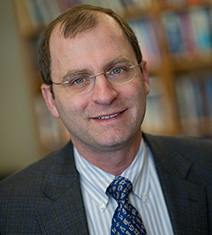About
A message from the committee chair

June 2011
The sesquicentennial celebrations drew to a close on Commencement and Reunion Weekend, concluding 150 days of community events, symposia, and commemorations to mark MIT's founding and impact on the world. The Class of 2011 knew since they were freshmen that they would be the Sesquicentennial Class, and their representatives participated at all stages in planning for the anniversary events, contributing in myriad ways to the celebrations. Congratulations to our newest alumni!
On April 10, 1861, Governor John A. Andrew of Massachusetts signed the Act of Incorporation for the Massachusetts Institute of Technology, creating "a body corporate" with the goal of aiding "the advancement, development and practical application of science in connection with arts, agriculture, manufactures and commerce" and granting it land in the newly created Back Bay of Boston (the Institute moved across the river to its current Cambridge campus in 1916).
Just two days after the charter signing, the country erupted in civil war. Amidst conflict about competing, incompatible visions of America, MIT's visionary founder, William Barton Rogers, cast a brave, unequivocal vote for a new kind of American future. Even the name was bold and dramatic: the word "technology" in the title was, until then, a novel and obscure term, as opposed to the more common "useful" or "mechanical arts." The "T" in MIT sparked the very idea of "technology" in the American imagination.
The future Rogers envisioned would belong neither to those born of high family nor schooled in theology, but to those who, schooled in science, engineering, and "large general cultivation", would apply their knowledge to practical problems for the betterment of society. As Charles Eliot wrote in 1869, when he was an MIT professor of chemistry, the graduates of the new institute with their "new education" would require courage, so much would their preparation differ from that of other leaders in their society.
MIT has grown a great deal from its roots as a technical school, but its core mission, and the courage it requires, have not. Fifty years ago, at the centennial celebrations, President John F. Kennedy captured this progress: "As American society has developed, MIT, remaining loyal to its initial commitments, has also developed. From a school designed to train railway, mining, and civil engineers, it evolved with the technical needs of our society into a great scientific university. More than that, it accepted the fact that modern science must bring its results to bear in a human setting and it has developed its study of man and society." Kennedy also noted that the world of ideas is essentially international, a model for other links between nations and peoples. Within weeks of that celebration, Yuri Gagarin and Alan Shepard flew into space and Kennedy issued his challenge to go to the moon, a mission in which MIT played a leading role.
MIT"s 150th anniversary celebrations acknowledge the profound changes at MIT in the last 50 years, while reaffirming the core principle of its motto, Mens et Manus, or Mind and Hand. William Barton Rogers would have been thrilled with the vibrant, creative MIT on display from January 7 to June 5 of this year, from faculty leaders envisioning the future of their fields at the MIT150 symposia, to the rededication of the charter at the Next Century Convocation on April 10, to the outpouring of community interest in the MIT150 Open House, Global Challenge, and FAST arts festival.
Rogers would surely be pleased with today's re-energized approaches to education, the new global diversity of students and faculty, the information revolution, and the rise of the life sciences and their associated technologies. The next 50 years will bring similar transformations: continuing social change on campus, innovations in energy and climate science and technology, further discoveries in the brain and life sciences, original insights in the humanities, new discoveries and models in the social sciences, and continued exploration and understanding of our earth, solar system, and universe.
Today, we can barely foresee the next century's most exciting new research, but history tells us that MIT's intellectual courage will persist to the bicentennial and beyond, remaining a global example of diligence, rigor, creativity, and service.
David A. Mindell PhD '96
Chair, MIT150 Steering Committee
Dibner Professor of the History of Engineering and Manufacturing
Professor of Aeronautics and Astronautics